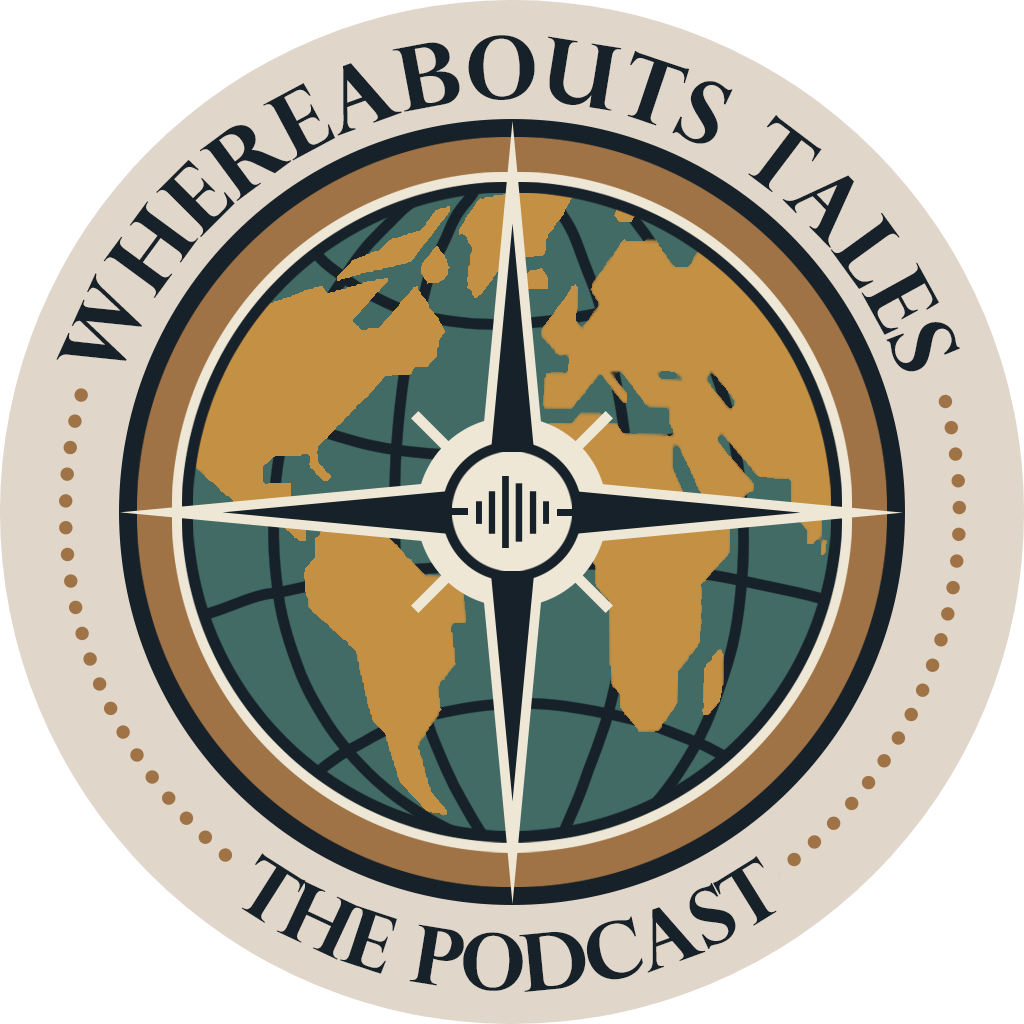Where Faith Meets Sci-Fi and Honesty: A Conversation with Rev. Dr. Robert Wallace
Episode #0034
What happens when a Star Trek-loving pastor, a Bible PhD holder, and a Discworld enthusiast walk into a podcast? Turns out, they're the same person.
In one of the most disarming and eye-opening episodes of Whereabouts Tales, host Paul Puscas sits down with Rev. Dr. Robert Wallace for a wildly enriching talk that effortlessly drifts between theology, science fiction, and the beautifully flawed fabric of humanity. This isn’t your usual Sunday sermon. It’s more like a deep chat at the pub after a long day, layered with thought, honesty, and a few laughs about coffee cups in Game of Thrones.
“Star Trek Helped Me Understand God”
The conversation kicks off in what seems like an unexpected direction, sci-fi fandom. But that’s where Robert’s brilliance begins to shine. Raised on Star Wars, Battlestar Galactica, and Deep Space Nine, Robert sees science fiction as a parable, a mirror to who we are and who we might become.
As he says, “Science fiction is at its best when it dreams about what we’re capable of and shines a light on the things we shouldn’t be doing.” For someone who walks both academic and spiritual paths, this isn’t a quirky hobby, it’s an essential lens to unpack truth.
Psalms, Not Sanitized
But the true heart of this episode lies in Robert’s deep dive into the Book of Psalms, his favorite, and the subject of his recent book The Prism of Psalm. If you think Psalms are just nice verses for greeting cards, think again. With a warm and raw honesty, Robert walks us through why Psalm 88, arguably the darkest of them all, is his personal go-to.
“There’s no happy ending in Psalm 88,” he says. “It’s just a raw scream into the darkness. And sometimes that’s what faith is—just asking to be heard.”
There’s a refreshing honesty here—one that refuses to sanitize grief, anger, or doubt. According to Robert, the idea that we always need to be ‘okay’ with God is not only unrealistic, it’s unbiblical.
A Weird Pastor for a Weird Church
Robert jokes that he needed a “weird church” to match his “weird self.” And he found it. Leading a politically diverse congregation near Washington, D.C., he doesn’t shy away from the complexities of modern faith. In fact, he leans into them.
From advocating for a depoliticized pulpit to wrestling with difficult biblical passages, Robert’s approach is as thoughtful as it is gutsy. He doesn’t dodge the big questions, about violence in scripture, gender roles, or what happens when God doesn’t look like Jesus. Instead, he invites us to wrestle with them too.
On Hope, Writing, and Letting Go of Perfect
Whether talking about writing books (“There are the books that are perfect, and there are the ones that get published”) or navigating leadership during the COVID lockdown, Robert’s reflections are rich with humility and grit. He talks candidly about imposter syndrome, creative doubt, and the wisdom of setting boundaries, even with your own expectations.
And perhaps most powerfully, he shares where he finds hope today: in Palestinian Christians dancing during Palm Sunday amidst war; in trans friends navigating faith in hostile spaces; in ancient texts that still, somehow, speak directly to now.
“Despair,” he says, quoting a theologian he admires, “is the luxury of the privileged.”
Faith That Feels Human
There’s something almost rebellious about how Robert talks about God. Not as a distant cosmic manager, but as a presence woven into the gritty, contradictory, often ridiculous texture of real life.
He’s not trying to sell religion, he’s trying to make it human again.
And maybe that’s the takeaway from this episode: faith isn’t about being perfect. It’s about showing up honestly—with your fear, your sci-fi references, your half-written prayers, your occasional swearing, and your love for the Godfather.
Tune In If You…
Ever felt out of place in a church but still curious about faith
Want to hear how Coolio, Tupac, and Psalm 23 actually overlap
Like your theology with a side of Discworld and sarcasm
Wonder if ancient scripture can still make sense today
Need permission to stop pretending everything’s okay
Final Thought
At the end of the episode, Paul reflects on how, despite not being a practicing believer, Robert’s take on faith makes him want to join his church. That’s the power of a conversation like this, not to convert, but to connect.
It’s one of those rare interviews where you finish listening and feel both challenged and comforted. Like a psalm itself. Maybe a messy one.
🎧 Listen to the full episode now on your favorite podcast platform.
📚 Robert's book, The Prism of Psalm,

